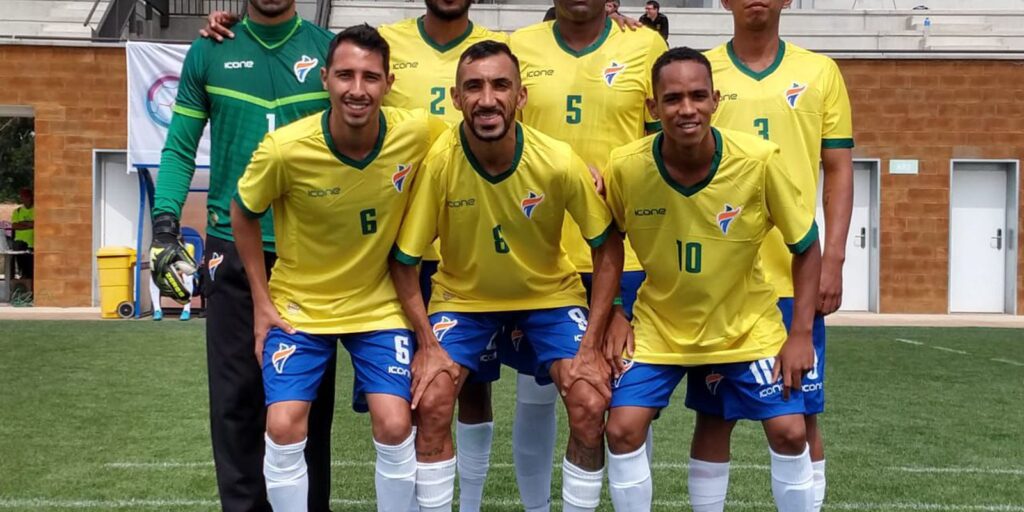the national government presented this Monday the project of law Care in Equality for the creation of the Comprehensive System of Care Policies in Argentina, which Extend maternity and paternity leavecreates new ones by adoption and modifies others, changes whose costs will be borne by social security and not by employers.
In the initiative that the Executive Power will send this week to Congress the Equal Licenses and Comprehensive System of Care Policies projects are unifiedwhich had been working in the sphere of the Government.
• The proposal is to create the Comprehensive Care System (Sinca) with gender perspective.
• This is about recognizing the right to all people to receive and provide careas well as self-care, for which a set of policies and services is stipulated and the public and private licensing system is modified.
• The project does not imply any increase in costs for employers given that it is expected that the new licenses and the extension of the current ones will be financed by social security.
• Specifically, it is proposed to extend the leave for pregnant people from 90 to 126 days and extend licenses for non-pregnant people, from 2 to 90 days.
• The initiative uses the terms “license for pregnant person” (replaces maternity leave) and “non-pregnant person leave” (replaces paternity leave) to include all gender identities and family compositions.
• The increase in licenses for non-pregnant people is expected progressive: from the entry into force of the law, the license will be increased to 15 days; after two years, to 30; after four, to 45; after six, 60 days, and after eight years of the law, the license will be 90 days.
• In addition, the project creates the license for those who decide to adopt and by adoption.
• The license will be 2 to 12 days per year for those who are about to adopt to facilitate procedures and meetings with girls, boys or adolescents in a situation of adoption.
• In the case of adoption, it is considered a license to 90 days.
• The initiative includes the creation of a leave of 2 to 6 days to care for or accompany the spouse or partner who performs medically assisted reproduction techniques, and extends it from 3 to 10 days in the event that they have minor sons and daughters. position.
• Likewise, it incorporates license extensions for children with disabilities, in the event of multiple births or adoptions, premature births or those with chronic illnesses.
• In the case of multiple births or adoptions, the license will be extended for 30 days for each daughter or son from the second.
• In premature births the leave will be extended to 30 days.
• In the event of the birth or adoption of children or adolescents with disabilities or chronic illnesses, the leave will be 180 days.
• The project recognizes the right to care for monotributistas, social monotributistas and autonomous, through the creation of a allowance for pregnant peoplenot pregnant and by adoption.
• The amount of the allocation will consist of the monthly payment of the minimum vital and mobile salary.
• The same regime is established for private household staff, temporary agricultural work staff and for the entire National Public Administration.
• For the staff of private homes, it creates an allowance for pregnant people, non-pregnant people and for adopting, at least, a living and mobile minimum wage.
• The right of non-pregnant and adoptive people to the period of leave is also recognized in the same way as it is recognized for pregnant people.
• In addition, it eliminates the presumption of resignation if the pregnant, non-pregnant and adoptive personnel do not return to their jobs after the license terms have expired. The employer must issue a summons and can no longer assume that the person resigned.
• The Executive’s project modifies the special licenses provided for in the Labor Contract Law to expand the right to care.

• On the other hand, it proposes to extend the license for the death of a spouse or partner -this figure is added- and for daughters and sons, which goes from 3 to 5 days, while it extends the license for the death of sisters and brothers from 1 to Three days.
• Creates special leave for care due to illness of a dependent, partner or spouse, which is currently 2 days, to a maximum of 20 days per year.
• It also creates leave for gender violence that will be up to a maximum of 20 days per year.
• Another novelty is that the months of leave are included in the forecast calculation as months contributed.
• In the recitals of the initiative, it is highlighted that policies “must ensure the provision, socialization, recognition and redistribution of care work, between the public sector, the private sector, families and community organizations and between all gender identities”.
• The project obliges the Ministry of Public Works to allocate at least 8.5% of its budget annually to expanding the country’s public care infrastructure.
• Establishes that the Executive Branch must create a national registry of paid care workers in order to facilitate the implementation of policies and also a registry of community care spaces.
• The project was conceived in the Interministerial Table for Care Policies, which brought together 15 agencies of the Executive Power, coordinated by the Ministry of Women, Gender and Diversity (MMGyD).
• In November 2020, a drafting commission was created for a preliminary bill for the Comprehensive Care System with a Gender Perspective.
• The MMGyD also held territorial parliaments to address the issue, made the Federal Map of Care with the support of ECLAC and the Care in Equality campaign.
• The project presented today to materialize Sinca “puts Argentina at the forefront” of care policies “because it was done in a participatory manner and taking all the recommendations of the ILO,” a government spokeswoman told Télam.
• In America, Argentina is one of the most backward countries in care legislation.
Care work includes activities aimed at the daily well-being of people, at various levels: material, economic, moral and emotional. It includes everything from the provision of essential goods for life, such as food, shelter, cleanliness, health and care, to the support and transmission of knowledge, social values and practices through processes related to upbringing, according to the definition of Cepal.
All statistics and reports on the subject place women as the main caregivers, generally unpaid work that prevents them from accessing profitable job opportunities and reinforces inequalities.
UN Women has highlighted that the covid 19 pandemic “has underlined the dependence” that society has on women as caregivers.


















